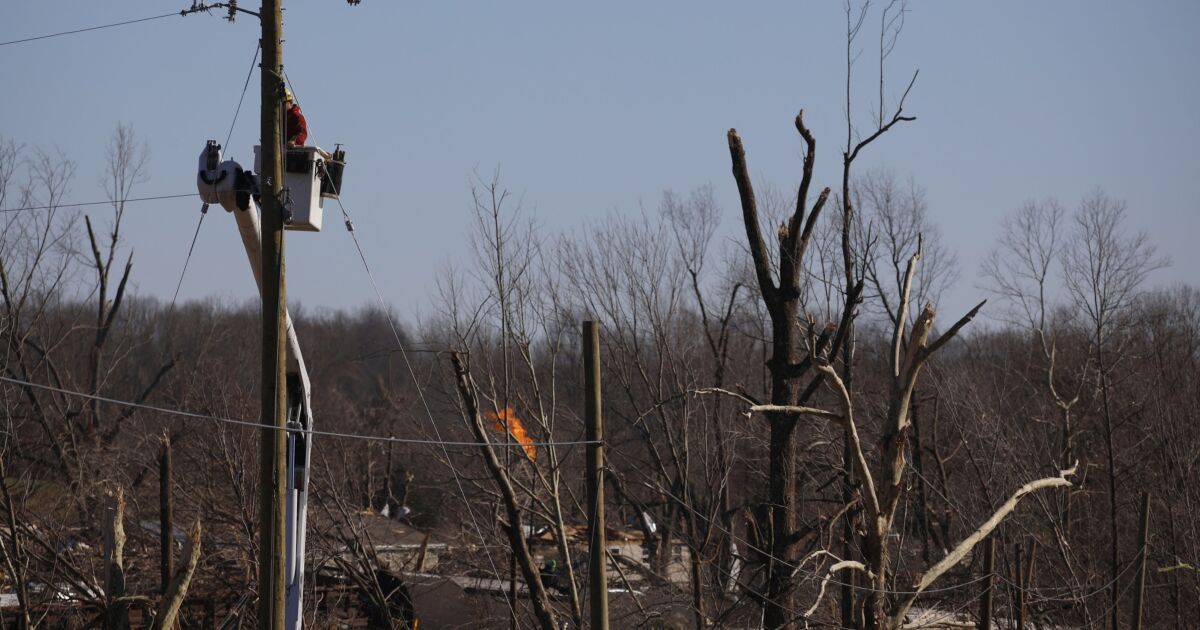Climate disasters threaten U.S. grids, risking billions in losses

The U.S. utilities sector could suffer annual losses of up to $4.1 billion as climate hazards threaten to batter the industry’s infrastructure, according to a new report.
Roughly one in five global power lines are heavily exposed to rising sea levels, hurricanes, wildfires and storms, according to BloombergNEF data published Wednesday. In the U.S. alone, 700,000 kilometers (435,000 miles) of power grids are vulnerable to physical climate hazards — just shy of the distance to the moon and back.
Rating agencies have downgraded at least nine energy companies due to physical climate risks over the past three years. One firm, PG&E Corp., was forced into bankruptcy because of escalating wildfire risks. California investigators said this week that a power line owned by the company started the second-largest wildfire in the state’s history.
Climate hazards have been responsible for more than $2 trillion in global economic losses over the past two decades, with the energy sector bearing the brunt, according to BNEF. The largest storms have caused more than $20 billion in damage to the U.S. grid over the past five years and adaptation could cost a few million dollars per mile.
Hurricane Ida, which pummeled much of the eastern U.S. with lashing rain and floods in August, killed at least 95 people and cost the economy $65 billion. It also took down 207 transmission lines in Louisiana, totaling $2 billion of damage.
“Hurricanes have caused billions of dollars in damage to the U.S. power grid in the past decade,” said Kathy Gao, a technology analyst at BNEF who wrote the report. “Building a more decentralized grid, such as micro-grids and behind-the-meter resources, could increase resiliency.”
To contact the author of this story:
Damian Shepherd in London at dshepherd35@bloomberg.net







